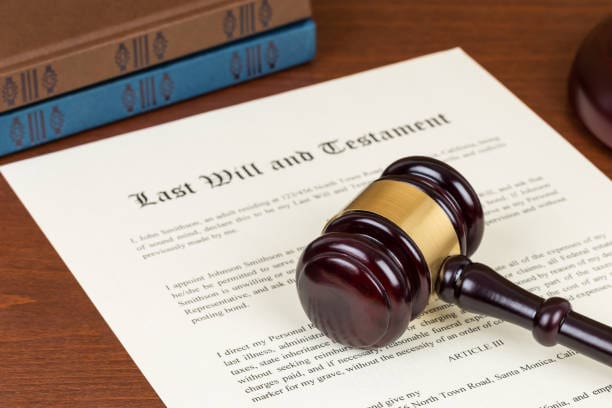If you are dealing with Wills and wish to know about the rights of beneficiaries, it must be a really stressful time for you, with emotions running high. When dealing with Wills, an essential requirement is to know the rights of beneficiaries.
It an accepted legal principle for many years that estate documents “belong” to the beneficiaries. Beneficiaries of a Will are people who receive a portion of the estate. For a beneficiary, there are certain important responsibilities and rights that they need to be aware of.
This is essential, because, often when you are unaware about your rights as a beneficiary, you might find yourself in some disputes and conflicts. The aim of this article is to provide a quick overview on the rights of Will beneficiaries. This way, you will better understand the legal procedures associated with Wills and Estates.
Role of Executors
Understanding rights of beneficiaries can also sometimes speed up the process of distribution of the entire estate, and cause less confusions and thereby less stress. It is important to note that the rights of beneficiaries are not the same as the rights of executors.
Executors have many responsibilities, including – collecting the assets of the deceased person’s estate, applying for a grant of probate, discharging all liabilities of the deceased person, and distributing estate assets. Other important duties of executors include:
- Locate the valid Will of the deceased;
- Organise the funeral based on the wishes that the deceased has set out in the Will;
- Pay for the funeral costs;
- Provide the copy of a Will, if requested so by any eligible party;
- Arrange for the death certificate;
- Inform all relevant bodies and parties about the death of the deceased. Among these include the Australian Tax Office (ATO) and the deceased’s tax implications or certain tax obligations, Centrelink, banks and superannuation funds. Generally, the executor has to pay tax obligation on behalf of the deceased;
- Identify the guardian of children of the deceased;
- Protect all the assets of the estate and property of the deceased;
- If there are conflicts between beneficiaries or family members, the executor needs to participate in the mediation, and dispute; and resolution processes, and assist with dealing with all conflicts.
Certain rights that executors have include:
- Receiving compensation for carrying out duties as an executor;
- The right to decline being an executor;
- The executor’s year – i.e. the executor is given one year from the date of death of the Will-maker to distribute property and estate

What Are The Rights Of Beneficiaries?
In NSW, under the Succession Act 2006 there are some legal rights of beneficiaries. Under this Act, a beneficiary has the right to:
- Receive information as to whether the deceased has left a valid Will in place.
- Receive information if they are a beneficiary of a Will, and receive information about the nature and extent of the deceased estate.
- Receive information about the expected share will which includes a date as to when the beneficiary will receive the allotted entitlement.
- A right to receive a copy of the Will at the the request of the beneficiary. In other words, if a beneficiary requests the executor to provide a copy of the Will, the executor, or anyone else who has possession of the Will, is legally required to do so.
- Receive information about any anticipated delays in the distribution of estate.
- Receive information about the general administration of the estate.
Other Rights Of Beneficiaries
Here are other rights of beneficiaries under the Succession Act 2006:
- In case there are liabilities attached to the portion of estate that a beneficiary is entitled to, he/she has a right to be notified about the liability. For instance, any relevant taxes.
- Receive information about the possibility of any contests or challenges to the Will which could potentially arise. Will contest and challenges can affect the beneficiary’s share of the estate.
- In case of any legal proceedings against the deceased, the beneficiary must be notified about the same.
- In NSW, all beneficiaries of Will have a right to receive a share of the estate within 12 months of the deceased’s death unless otherwise specified in the Will. The rights of beneficiaries holding a residual or remainder interest in an estate are much broader. When they fall into the residuary category, the entitlement to access to information extends to the ability to access information relating to the management and administration of the estate in its entirety.
- Lastly, the beneficiaries must receive a Statement of Distribution which provides information about their share of the estate, including how the executors calculated that information.
FAQs On Rights Of Beneficiaries
1. Do beneficiaries have right to receive information about accounting matters related to estate?
As part of the rights of beneficiaries, they are required to be informed about the general administration of the estate. This also include accounts that the executor maintains in relation to the estate.
The NSW Trustee Act states that the beneficiary has the right to access all information regarding the estate.
2. Does beneficiary have right to contest a Will?
In many instances, a beneficiary believes that they have a greater entitlement than what has been allotted to them. In these cases, yes, the beneficiary has the right to contest a Will. There are various legal grounds, like lack of testamentary capacity, on which a Will can be contested.

How Can JB Solicitors Help
Our Wills and Estate Planning lawyers are experts in the field with a wealth of experience that has made it possible for them to provide market-leading legal advice. At JB Solicitors, we provide a range of services, including:
- Informing you about your rights as beneficiaries according to relevant state laws within Australia,
- Providing legal advice on how best to exercise your rights as beneficiary; and
- Ensuring that you are aware of all legal obligations that apply to you.
In case disputes arise between beneficiaries, or between beneficiaries and executors of Wills, we provide expert mediation services. This will help you resolve all differences without approaching the court. We can mediate a variety of legal matters may it be disputed Wills, family provision claims, or more information regarding Wills and probates
Because we value transparency, we have fixed-fee pricing for Wills and Estate Planning. This way you will have a clear sense of the costs from the start so that you are able to plan your next course of action accordingly.
If you wish to have a confidential chat on any matter regarding Wills, and wish to have a detailed explanation on the rights of beneficiaries, do not hesitate to get in touch with our friendly and experienced lawyers today.
Contact our experienced Wills and Estate lawyers here to have a confident
